Arts & Entertainment
Pride march brings gayborhood boom years back to Chelsea
‘We will continue what began 50 years ago, to bring us closer to equality’
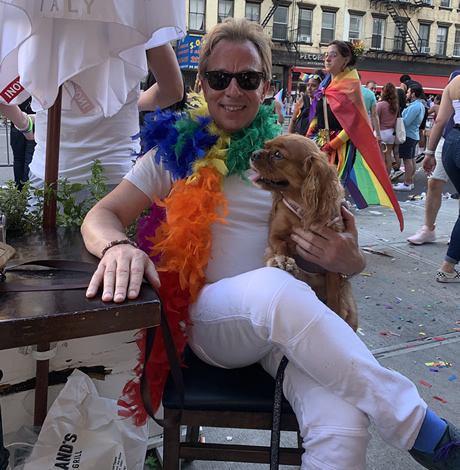
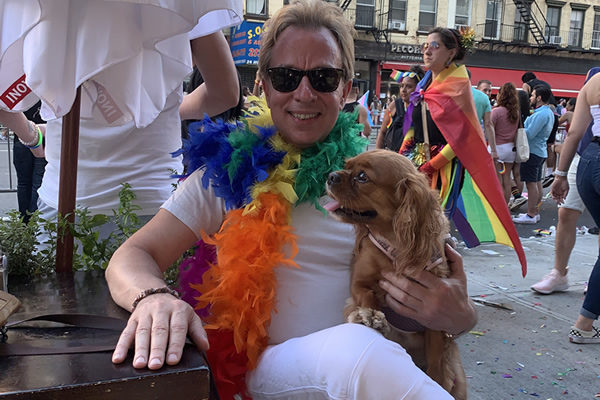
From long lines to get into gay bars to crowded sex shop aisles to sidewalks dense with drag queens, daddies, dykes, twinks, tweakers, and wide-eyed tourists, Manhattan’s onetime ground zero of gayness had a déjà vu moment that lasted all day long, and well into the next, when Chelsea served as the end point of June 30’s NYC Pride March.
Cheered on by an estimated four million spectators, the March proceeded down Fifth Avenue from its East 26th Street kick-off, went past the Stonewall Inn during its Greenwich Village phase, then made its way up Seventh Avenue, concluding in the heart of Chelsea.
Twelve hours and 32 minutes after its noon start time, over 150,000 marchers had crossed the West 23rd Street finish line, from which point many remained in the area to congregate on stoops, hold impromptu dance-offs, and scoop up Stonewall 50 T-shirts hawked by vendors who turned side streets closed to vehicular traffic into open-air markets.
Some strolled, many strutted, down Eighth Avenue, between West 14th and 23rd Streets—which, at the height of Chelsea’s gay glory, housed dozens of queer-centric businesses, including gay lifestyle retail mecca Rainbows & Triangles, and The Big Cup—a java joint that served the community as, depending on your pop culture touchstone, the “Cheers” bar, Central Perk, Starbucks, or a brick and mortar Grindr, where hookup prospects were never more than 20 feet away.
By dawn, the streets were clean, and little evidence of the previous day’s record-setting revelry remained, save for the Pride-hued confetti that promises to linger, like Christmas tree needles, as a reminder of the season that came and went.
For longtime locals, the Pride March recalled an era when Chelsea was the reigning queen of NYC gay nightlife, retail, and residency.
“I consider the heyday of the Chelsea gay vibe to be when I moved here [in 1996] to until around 2005,” says 49-year-old Stephen Charles Lincoln, creator/proprietor of The Protein Bakery, a neighborhood fixture since 1999.
WorldPride, Lincoln notes, “was a fantastic reminder” of the heyday, “with the streets filled with gay people of every race, age, and sexual preference.”
While the onetime group fitness director at the predominantly gay David Barton Gym strongly disavows the notion that Chelsea is “over” as a gay neighborhood (“I’m still here,” he quips), Lincoln concedes it “has definitely diluted over the past 10 years.”
Unlike Splash, Rawhide, and View, not every gay bar from Chelsea’s golden age has been consigned to history.
Sixty-year-old Derek Danton, “an out business owner for 40 years, 20 with the Eagle NYC,” says there is “really nothing in my history to compare to the events of the last two weeks. Locals and visitors alike were just happy to be alive, happy to be free to express themselves, unconditionally.”
Located at West 28th Street and 11th Avenue since 2001, and one of the only Manhattan gay bars with a roof deck, the Eagle is set to mark its 50th anniversary next year.
“In its storied history,” Danton notes, “the size of the crowds at the Eagle, because of WorldPride, is unprecedented… It is astonishing to realize that so many thousands of visitors from all around the world know and love the Eagle, and that tradition is still valued.”
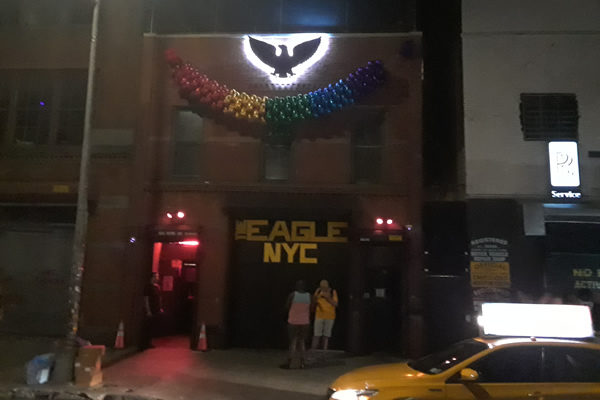
Andrew Rai, 38, a lifelong resident of Chelsea, talks of vanishing tradition, noting he feels the March “retains some of the rapidly fading cultural authenticity” of his neighborhood.
“Chelsea,” Rai says, “was very gay when I was growing up, was very vibrant, in terms of the variety of personalities, genders, and thoughts. Now, it’s becoming very homogenized. But this really harkened me back to when Chelsea was truly diverse. It makes me feel that there’s still some element of it, somewhere, that lives.”
Fifty-one-year-old Craig M. de Thomas, a partner in the Midtown-based commercial and residential title insurance company, Insignia National Title Agency, recalls “telling my grandmother I was gay when I was 25 years of age,” and often traveling “from upstate New York, to indulge in the gay life that is offered here. I have fond memories of going to the many Chelsea clubs, bars, and restaurants, truly enjoying life and always feeling safe and accepted. Seeing men openly sharing affection and being their authentic selves in public was incredible to me. I wanted to be part of that, which is why I moved here 11 years ago.”
Over the last few years, de Thomas observes, “We have seen Chelsea shift, as many gay business owners and residents have moved north [to Hell’s Kitchen].” This year’s Pride celebration, he says, “brought with it a much-needed injection of gayness to Chelsea. It was lovely to walk around over the weekend, both day and evening, and feel the gay energy again, to see restaurants, bars, and shops filled with life and happiness. It was a vibe that is reminiscent of days gone by.”
Calling the Pride March the “culmination of seeds sown decades ago, many of which were planted here in Chelsea by residents who still reside here,” de Thomas sees the neighborhood’s gay liberation greenhouse role as an ongoing one, noting, “We are the fruits” of those seeds and, as such, “will continue what began 50 years ago, to bring us closer to equality” while celebrating “the beauty and power of diversity.”
That Chelsea diversity has legs—four of them, in the form of many locals for whom Sunday’s Parade March intersected with the daily duties of dog ownership.
Chicago-to-NYC transplant Abbey Stolle spoke with the Blade while walking her Shih Tzu, Donna, in close proximity to their residence at 21st Street and Seventh Avenue, where one of the event’s green-shirted volunteers held a sign letting March participants know they were two blocks from the route’s end.
“People want to feel joy. They want to feel love,” she says, of the neighborhood’s sudden population explosion. “I’ve been out here all day. No one I know living here has ever complained [about the crowds brought by the March], and I have a mixed bag in my building—young, old, gay, straight, trans.”
Detroit-born Stolle, 37, spoke with this 52-year-old reporter about his having grown up during the height of the AIDS crisis, and put her own experience within the context of “my era, Matthew Shepard, that fear of coming out in the ’90s. I was a raver for 15 years. Gay men took me under their wing.”
As “a straight white woman,” Stolle notes, “I guess I feel a bit inferior on a day like today. This is a weighted year. These are people,” Stolle said, of the Stonewall-era faces in the March and on the streets, “who’ve lived through so much, who are still living here.”
Clarifying her use of that charged word, Stolle says she did not invoke inferiority “in a negative way. It’s just, it’s not my day. What are my woes compared to some of the strife these people are going through? But I’m a woman, so I get that taste, that sprinkle.”
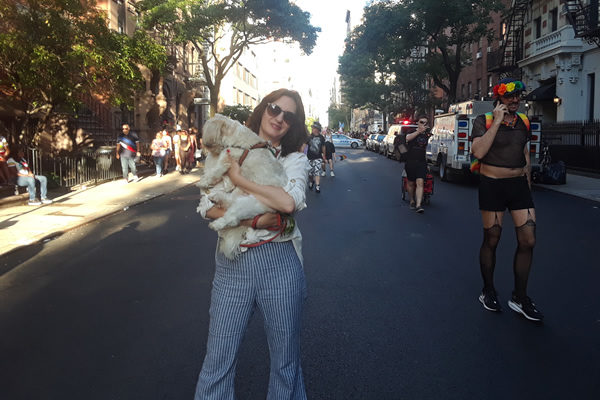
Having watched the day’s events from a table outside Cafe Champignon (Seventh Avenue between West 21st and 22nd Streets), de Thomas recalls, “I stated to my darling friends, gay and straight, as we were sitting in the midst of millions of celebrants, ‘I absolutely love that this is our normal. Isn’t it fantastic?’ ”
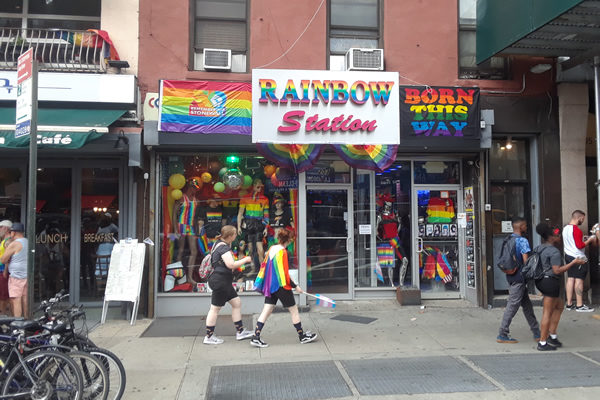
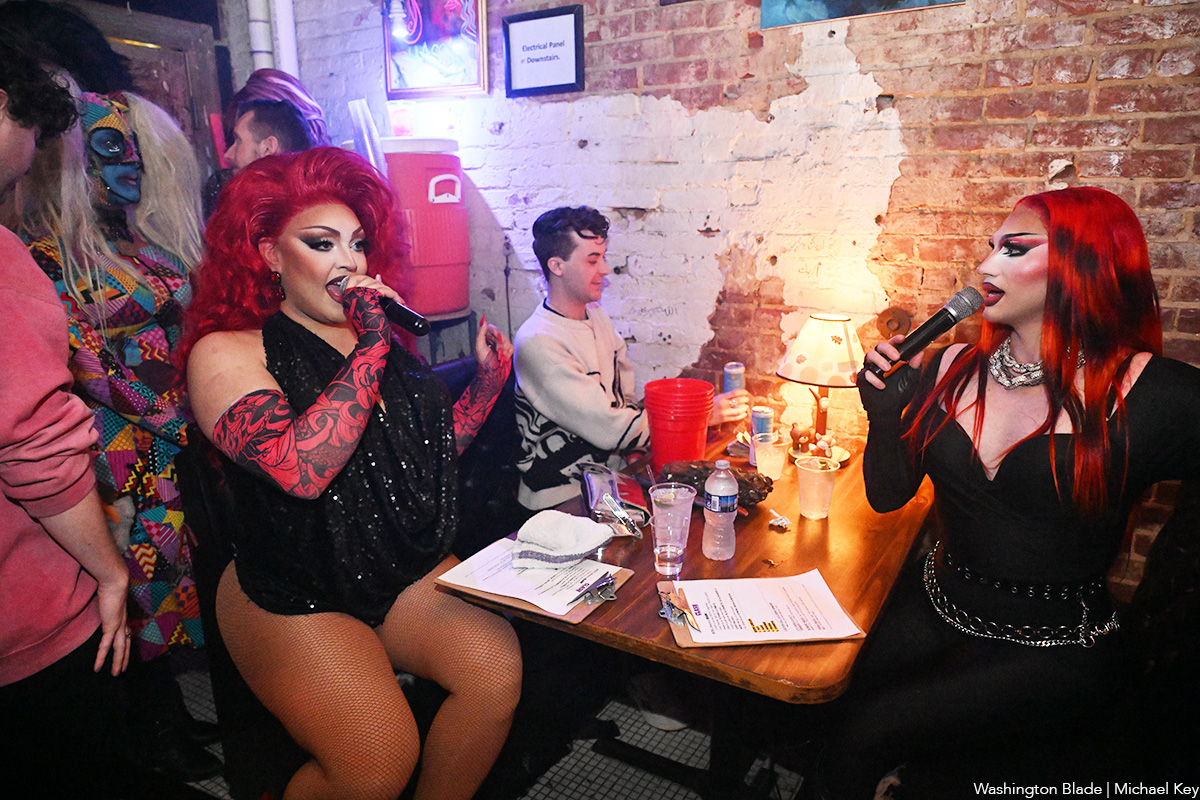
Crimsyn and Tatianna hosted the new weekly drag show Clash at Trade (1410 14th Street, N.W.) on Feb. 14, 2026. Performers included Aave, Crimsyn, Desiree Dik, and Tatianna.
(Washington Blade photos by Michael Key)
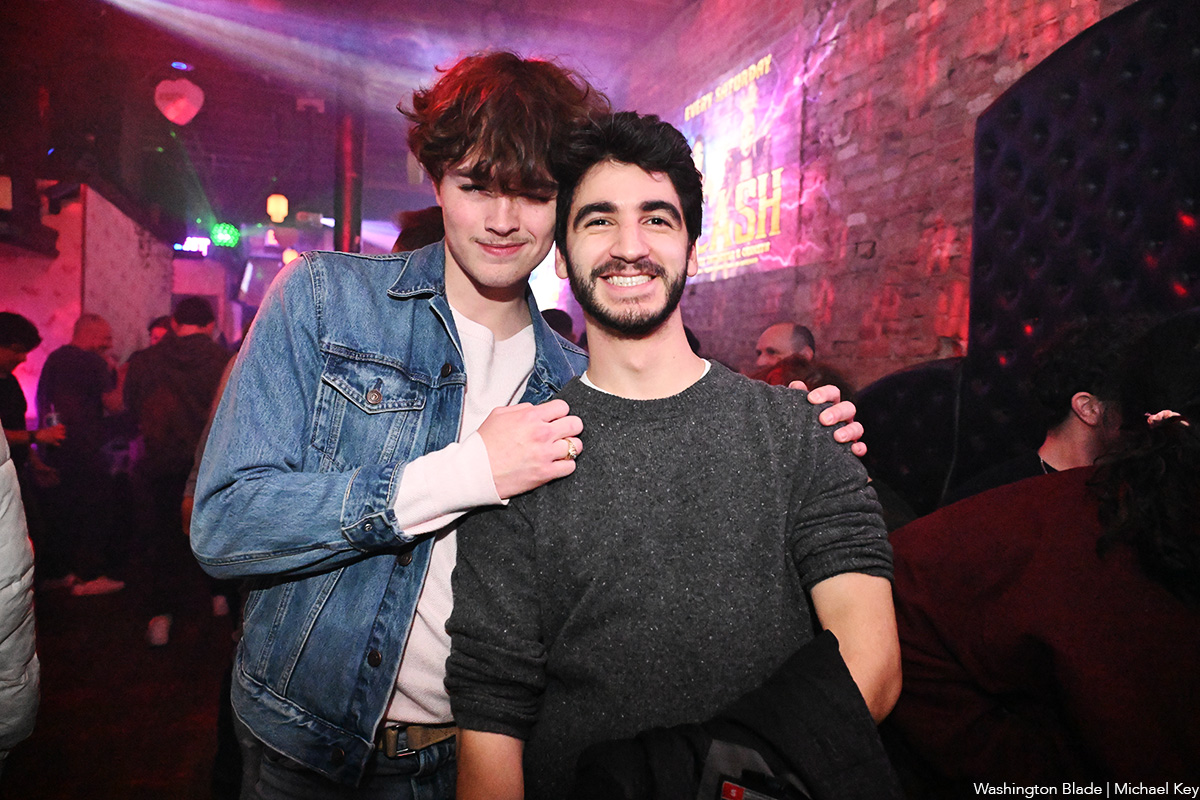
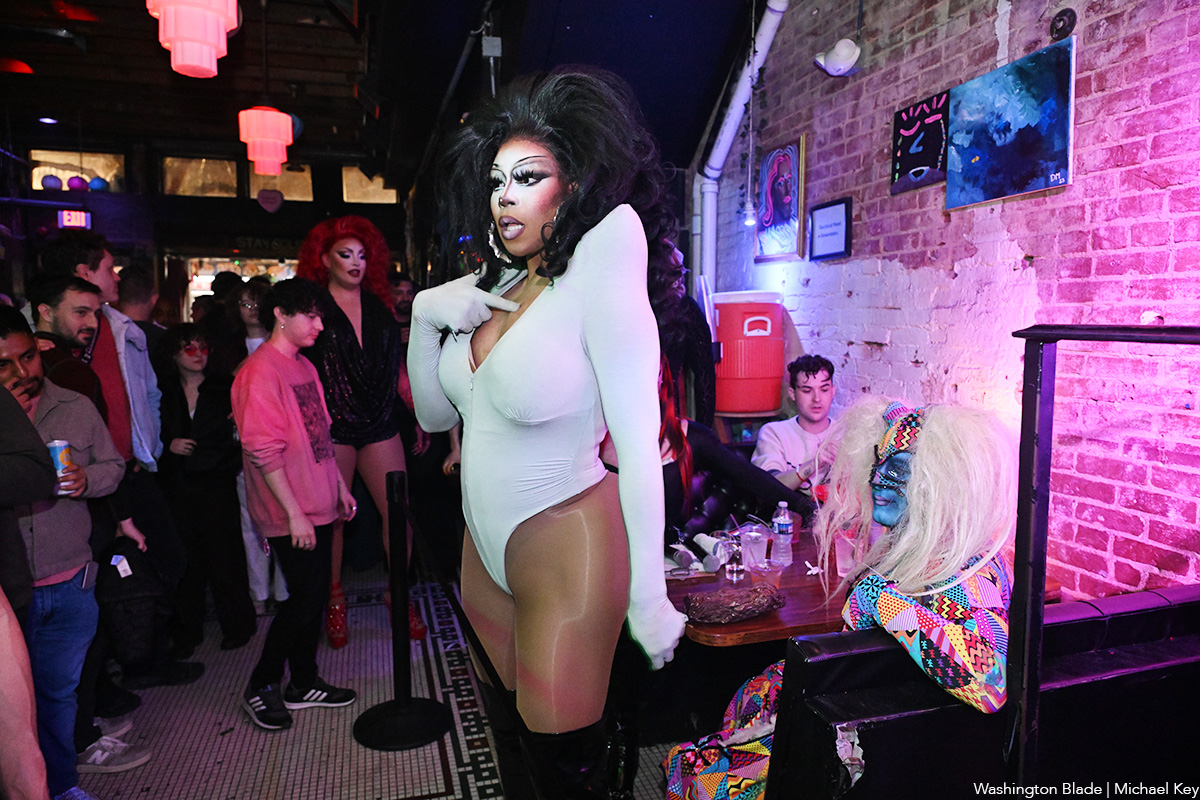
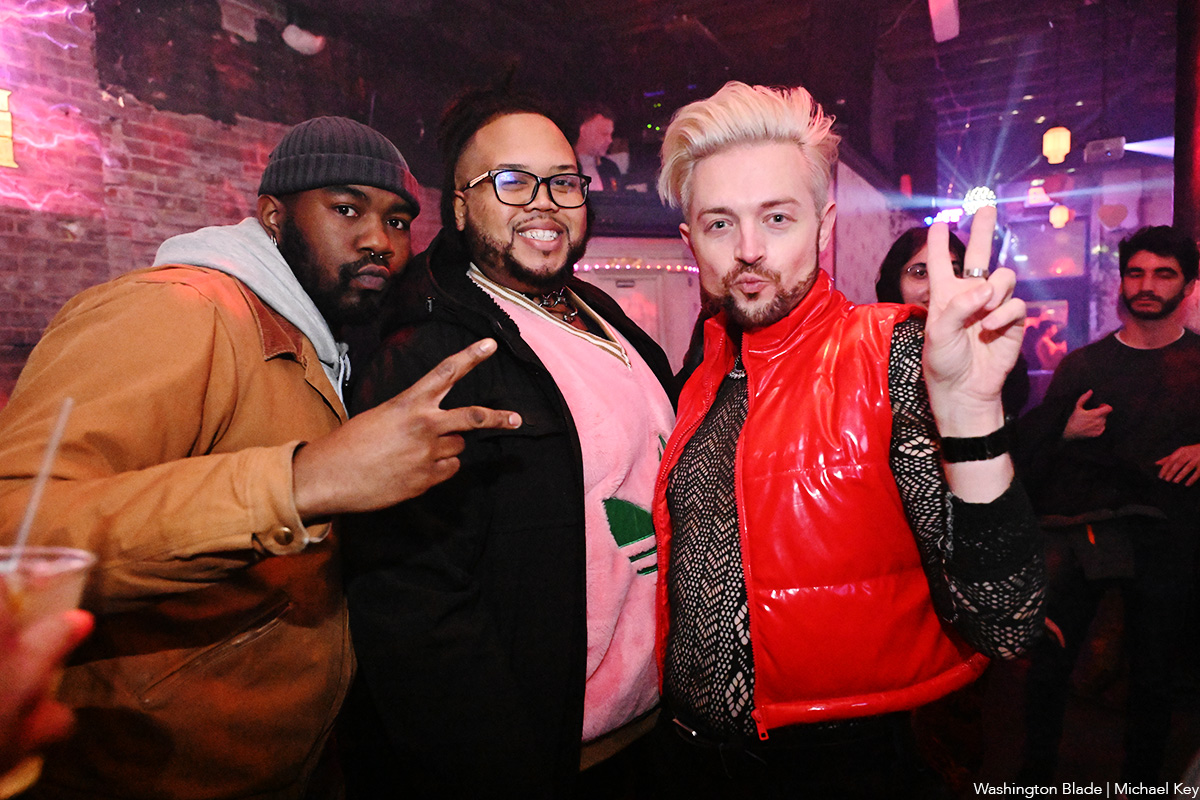
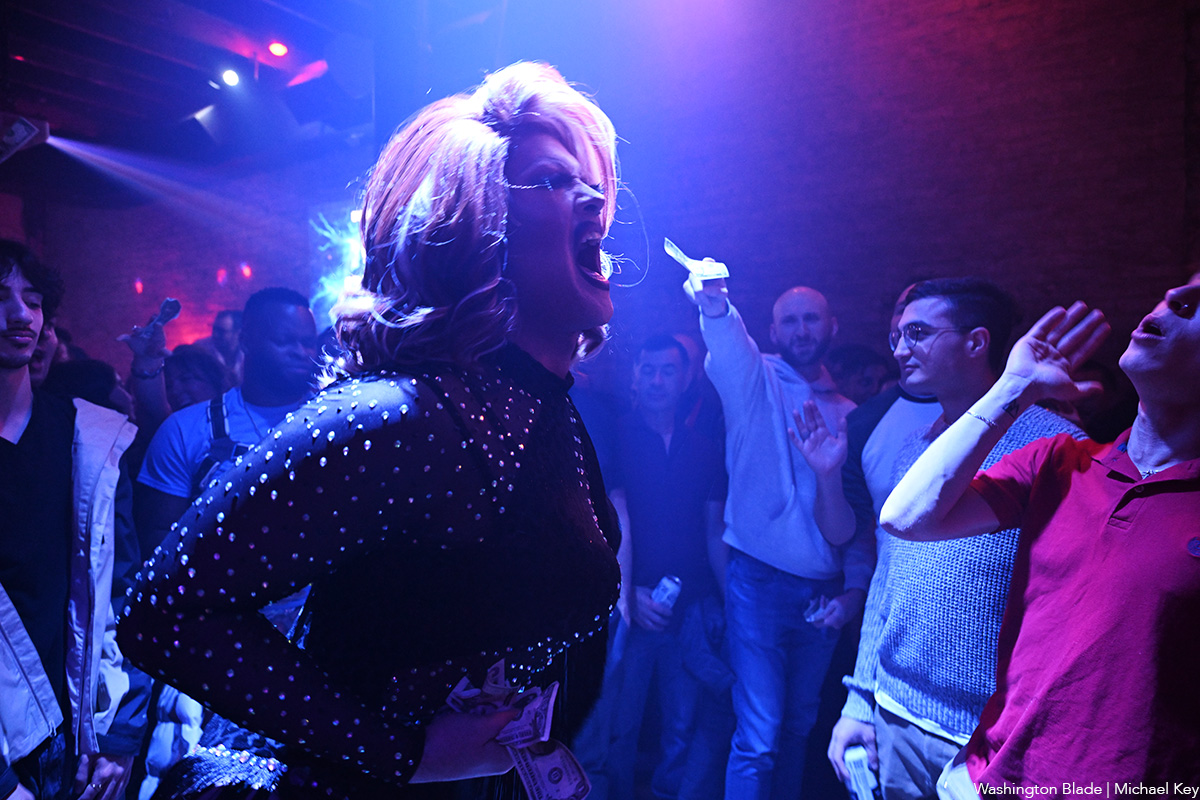
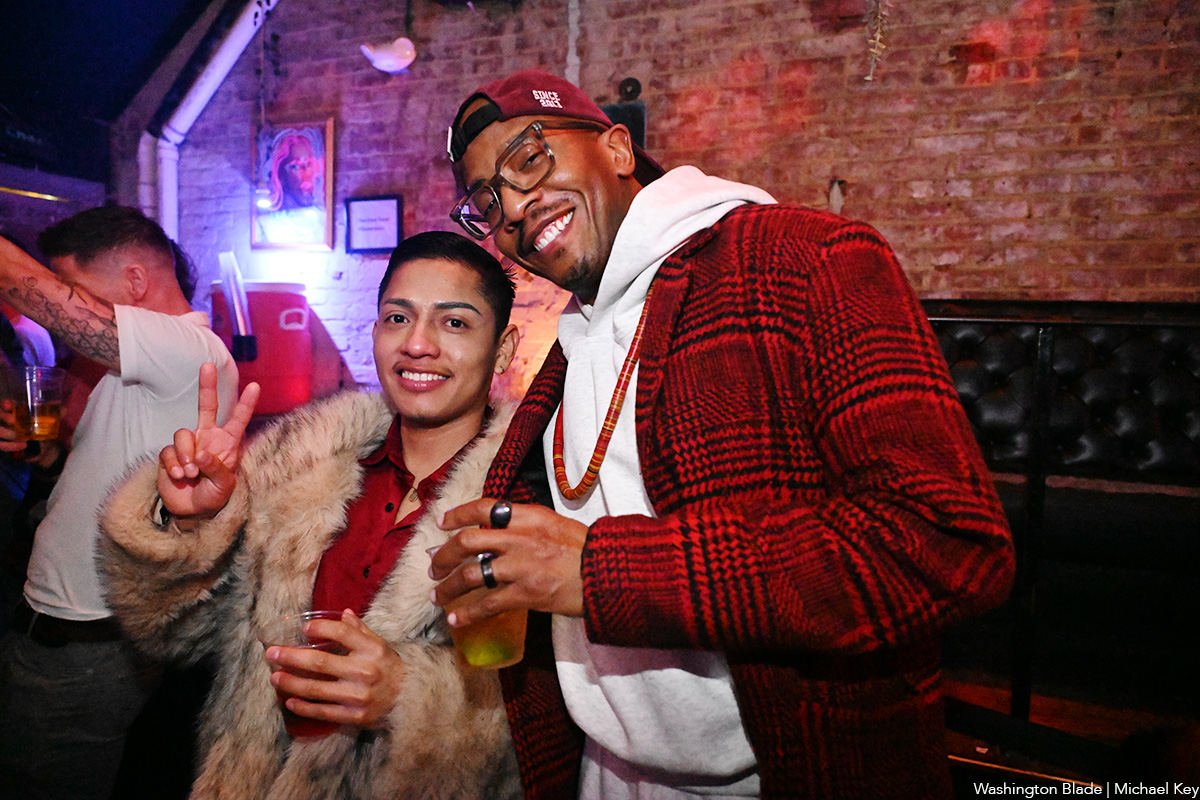
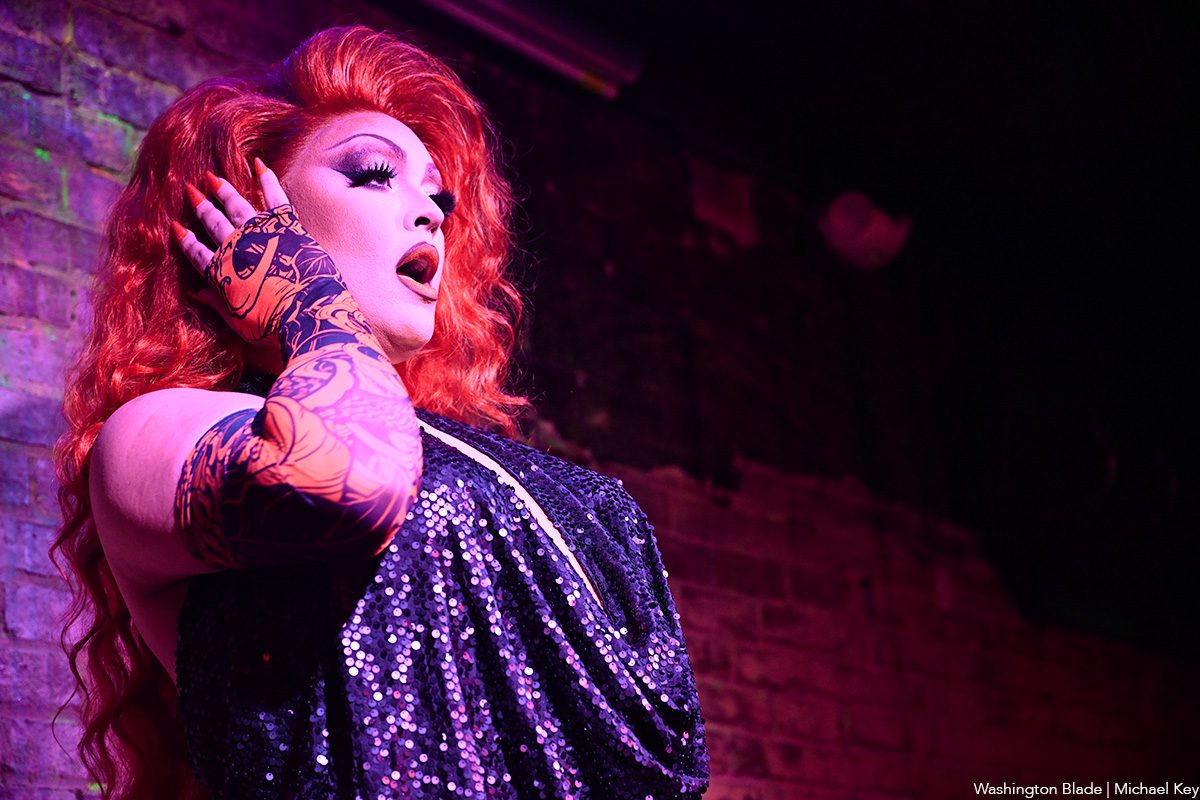
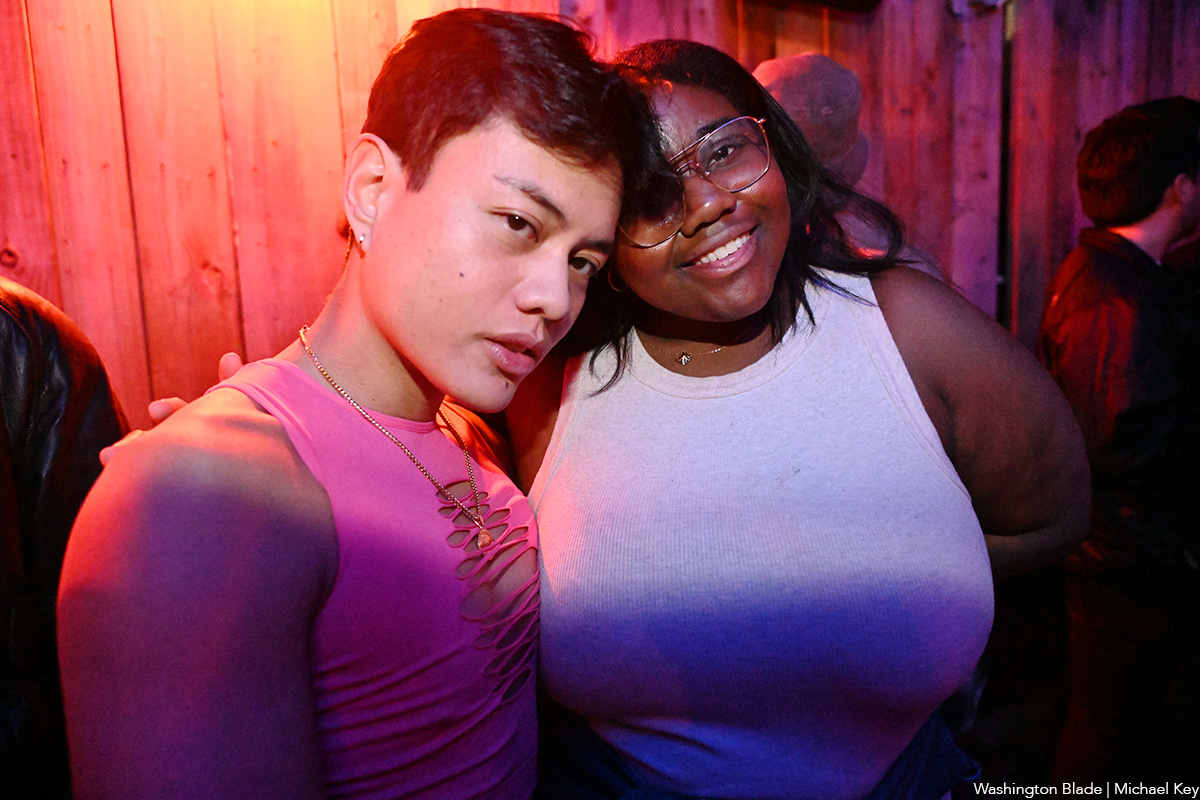
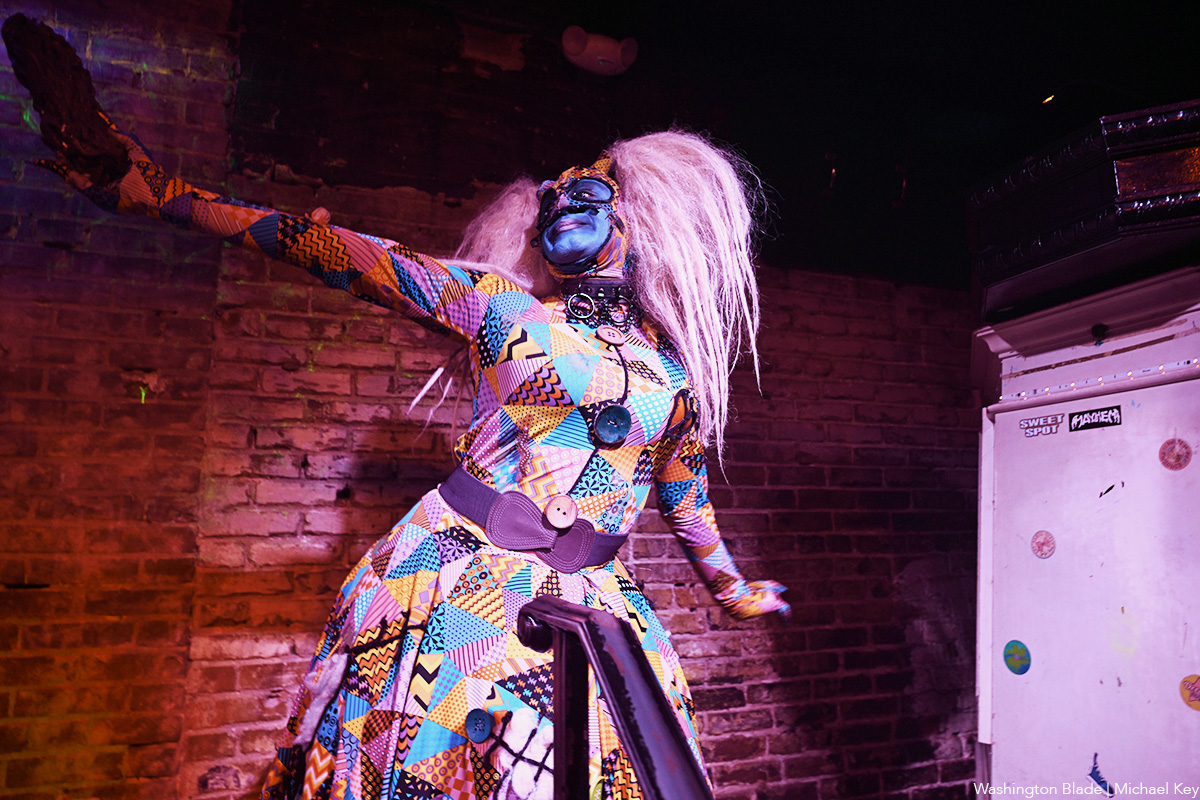
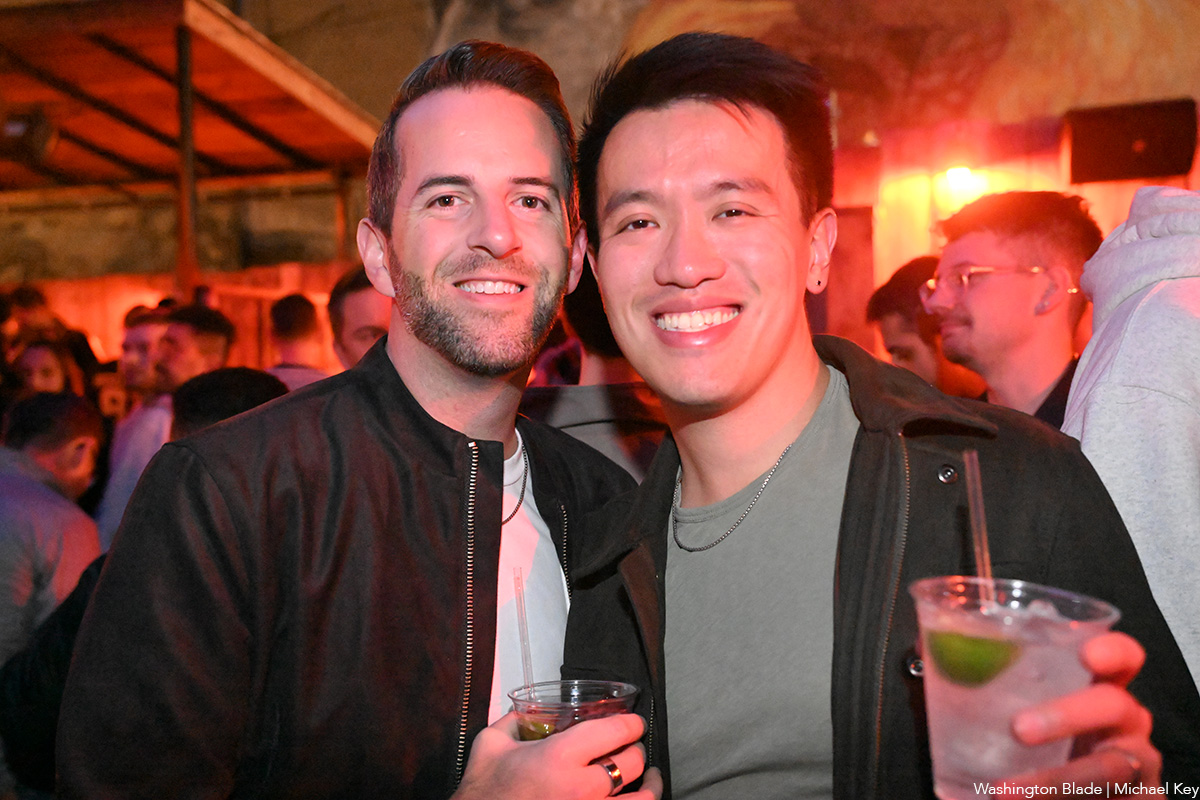
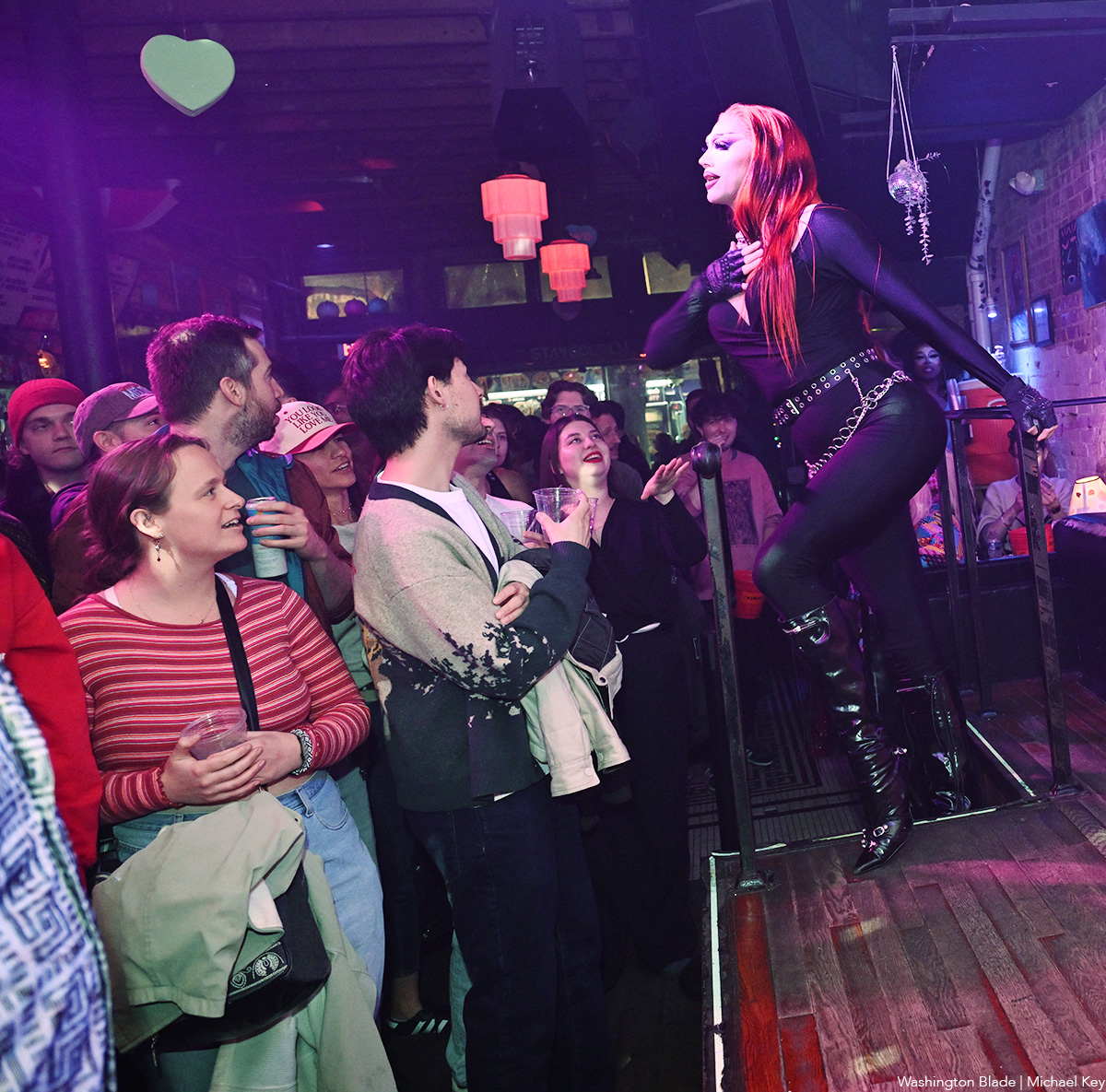
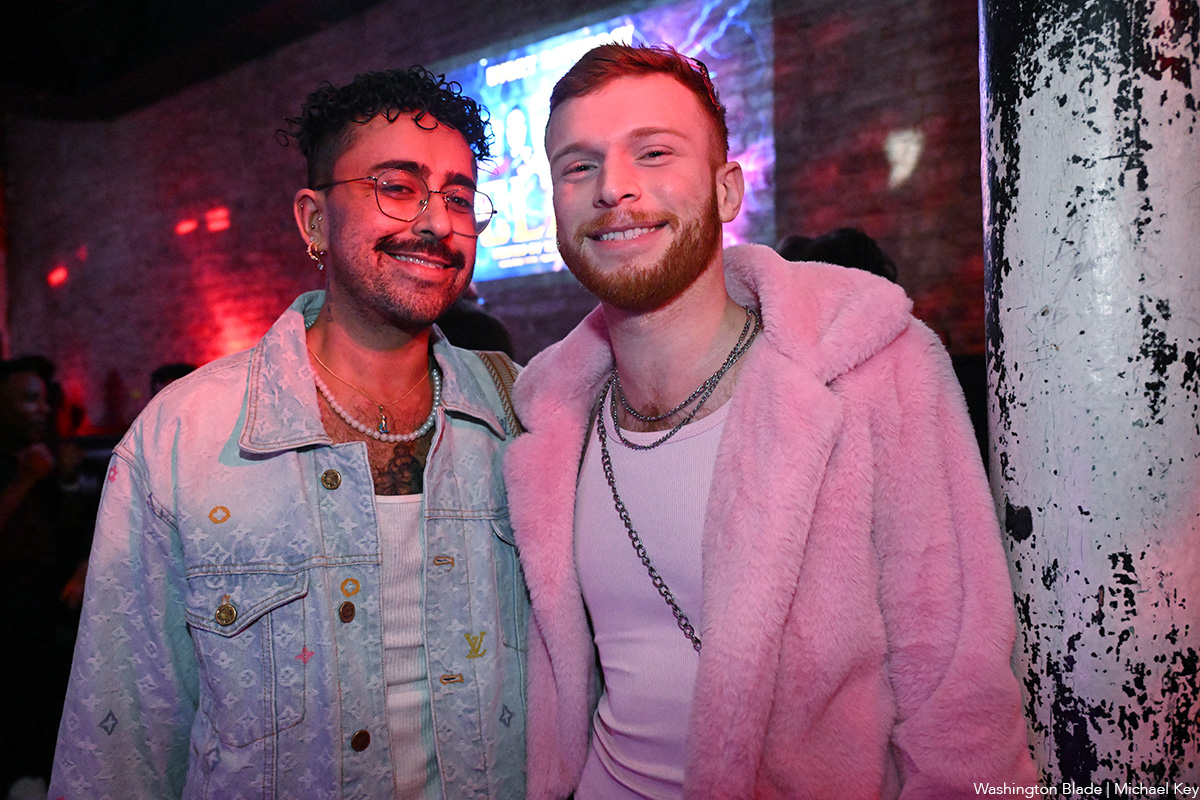
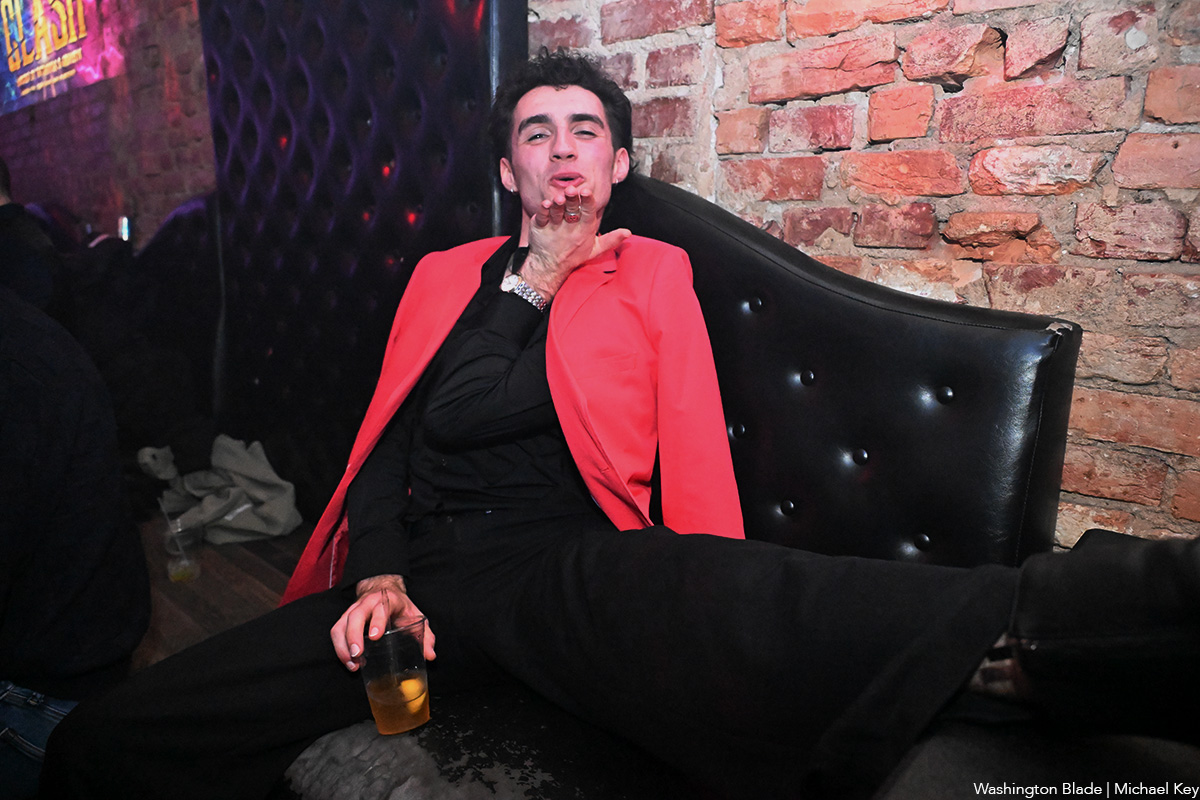
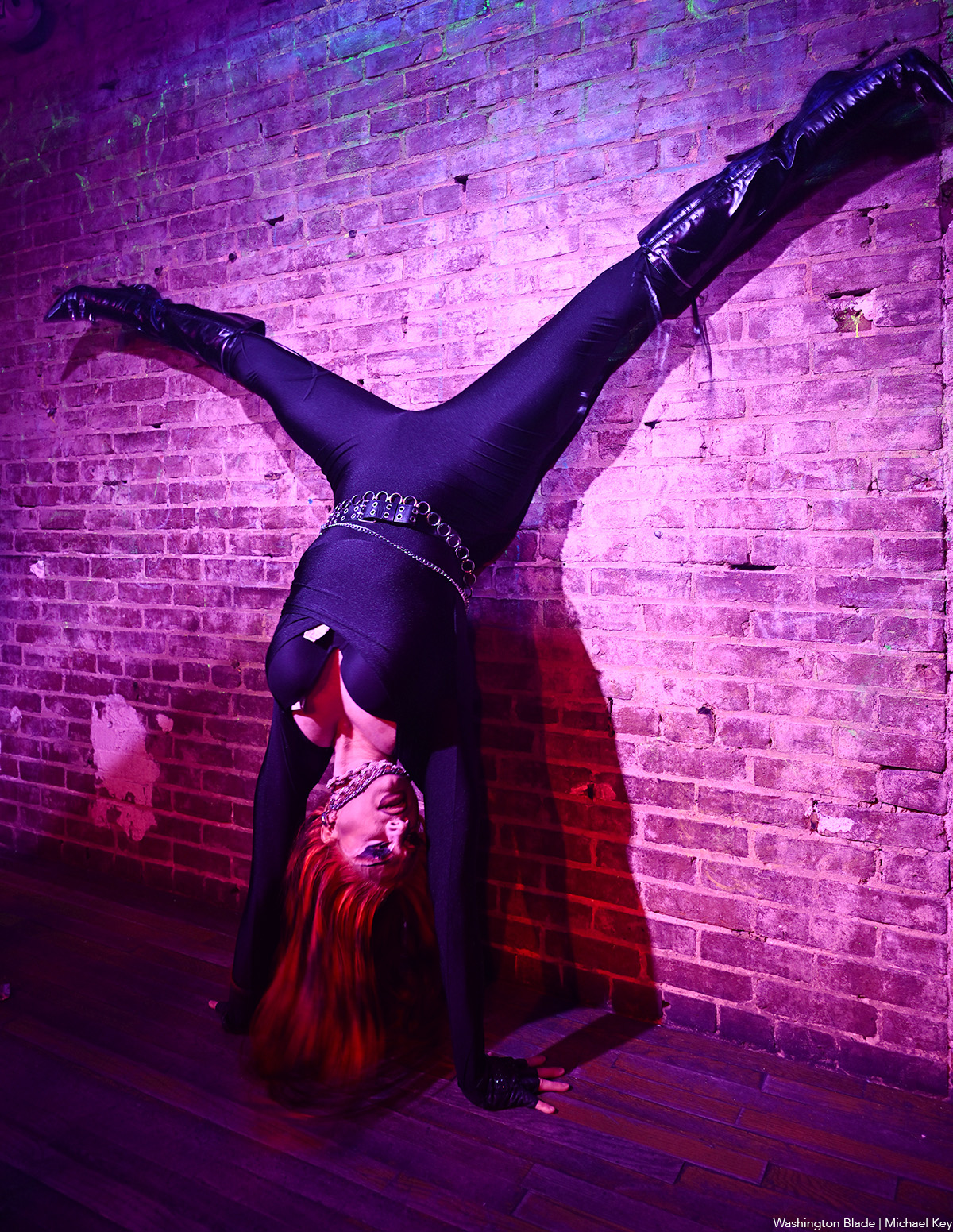
Theater
Magic is happening for Round House’s out stage manager
Carrie Edick talks long hours, intricacies of ‘Nothing Up My Sleeve’

‘Nothing Up My Sleeve’
Through March 15
Round House Theatre
4545 East-West Highway
Bethesda, Md. 20814
Tickets start at $50
Roundhousetheatre.org
Magic is happening for out stage manager Carrie Edick.
Working on Round House Theatre’s production of “Nothing Up My Sleeve,” Edick quickly learned the ways of magicians, their tricks, and all about the code of honor among those who are privy to their secrets.
The trick-filled, one-man show starring master illusionist Dendy and staged by celebrated director Aaron Posner, is part exciting magic act and part deeply personal journey. The new work promises “captivating storytelling, audience interaction, jaw-dropping tricks, and mind-bending surprises.”
Early in rehearsals, there was talk of signing a non-disclosure agreement (NDA) for production assistants. It didn’t happen, and it wasn’t necessary, explains Edick, 26. “By not having an NDA, Dendy shows a lot of trust in us, and that makes me want to keep the secrets even more.
“Magic is Dendy’s livelihood. He’s sharing a lot and trusting a lot; in return we do the best we can to support him and a large part of that includes keeping his secrets.”
As a production assistant (think assistant stage manager), Edick strives to make things move as smoothly as possible. While she acknowledges perfection is impossible and theater is about storytelling, her pursuit of exactness involves countless checklists and triple checks, again and again. Six day weeks and long hours are common. Stage managers are the first to arrive and last to leave.
This season has been a lot about learning, adds Edick. With “The Inheritance” at Round House (a 22-week long contract), she learned how to do a show in rep which meant changing from Part One to Part Two very quickly; “In Clay” at Signature Theatre introduced her to pottery; and now with “Nothing Up My Sleeve,” she’s undergoing a crash course in magic.
She compares her career to a never-ending education: “Stage managers possess a broad skillset and that makes us that much more malleable and ready to attack the next project. With some productions it hurts my heart a little bit to let it go, but usually I’m ready for something new.”
For Edick, theater is community. (Growing up in Maryland, she was a shy kid whose parents signed her up for theater classes.) Now that community is the DMV theater scene and she considers Round House her artistic home. It’s where she works in different capacities, and it’s the venue in which she and actor/playwright Olivia Luzquinos chose to be married in 2024.
Edick came out in middle school around the time of her bat mitzvah. It’s also around the same time she began stage managing. Throughout high school she was the resident stage manager for student productions, and also successfully participated in county and statewide stage management competitions which led to a scholarship at the University of Maryland, Baltimore County (UMBC) where she focused on technical theater studies.
Edick has always been clear about what she wants. At an early age she mapped out a theater trajectory. Her first professional gig was “Tuesdays with Morrie” at Theatre J in 2021. She’s worked consistently ever since.
Stage managing pays the bills but her resume also includes directing and intimacy choreography (a creative and technical process for creating physical and emotional intimacy on stage). She names Pulitzer Prize winning lesbian playwright Paula Vogel among her favorite artists, and places intimacy choreographing Vogel’s “How I learned to Drive” high on the artistic bucket list.
“To me that play is heightened art that has to do with a lot of triggering content that can be made very beautiful while being built to make you feel uncomfortable; it’s what I love about theater.”
For now, “Nothing Up My Sleeve” keeps Edick more than busy: “For one magic trick, we have to set up 100 needles.”
Ultimately, she says “For stage managers, the show should stay the same each night. What changes are audiences and the energy they bring.”

Friday, February 13
Center Aging Monthly Luncheon With Yoga will be at noon at the DC Center for the LGBT Community. Email Mac at [email protected] if you require ASL interpreter assistance, have any dietary restrictions, or questions about this event.
Go Gay DC will host “LGBTQ+ Community Happy Hour Meetup” at 7 p.m. at Freddie’s Beach Bar and Restaurant. This is a chance to relax, make new friends, and enjoy happy hour specials at this classic retro venue. Attendance is free and more details are available on Eventbrite.
Women in their Twenties and Thirties will be at 7 p.m. on Zoom. This is a social discussion group for queer women in the D.C. area. For more details, visit the group on Facebook.
Saturday, February 14
Go Gay DC will host “LGBTQ+ Community Brunch” at 11 a.m. at Freddie’s Beach Bar & Restaurant. This fun weekly event brings the DMV area LGBTQ community, including allies, together for delicious food and conversation. Attendance is free and more details are available on Eventbrite.
The DC Center for the LGBT Community will host a screening of “Love and Pride” at 1:30 p.m. This event is a joy-filled global streaming celebration honoring queer courage, Pride, and the power of love. It’s a bold celebration of courage and community — a fearless reminder of what we’ve overcome, how love is what makes us unstoppable, and how we have always turned fear into fierce. For more details, visit the Center’s website.
Sunday, February 15
LGBTQ+ Community Coffee and Conversation will be at 12 p.m. at As You Are. This event is for people looking to make more friends and meaningful connections in the LGBTQ community. Attendance is free and more details are available on Eventbrite.
Monday, February 16
Queer Book Club will be at 7:00p.m. on Zoom. This month’s read is “Faebound” by Saara El-Arifi. For more details, visit the DC Center’s website.
“Center Aging: Monday Coffee Klatch” will be at 10 a.m. on Zoom. This is a social hour for older LGBTQ+ adults. Guests are encouraged to bring a beverage of choice. For more information, contact Adam ([email protected]).
Tuesday, February 17
Center Bi+ Roundtable will be at 7 p.m. on Zoom. This is an opportunity for people to gather in order to discuss issues related to bisexuality or as Bi individuals in a private setting.Visit Facebook or Meetup for more information.
Wednesday, February 18
Job Club will be at 6 p.m. on Zoom upon request. This is a weekly job support program to help job entrants and seekers, including the long-term unemployed, improve self-confidence, motivation, resilience and productivity for effective job searches and networking — allowing participants to move away from being merely “applicants” toward being “candidates.” For more information, email [email protected] or visit thedccenter.org/careers.
Thursday, February 19
The DC Center’s Fresh Produce Program will be held all day at the DC Center for the LGBT Community. To be fair with who is receiving boxes, the program is moving to a lottery system. People will be informed on Wednesday at 5 p.m. if they are picked to receive a produce box. No proof of residency or income is required. For more information, email [email protected] or call 202-682-2245.
Virtual Yoga Class will be at 7 p.m. on Zoom. This free weekly class is a combination of yoga, breath work and meditation that allows LGBTQ+ community members to continue their healing journey with somatic and mindfulness practices. For more details, visit the DC Center’s website.
















